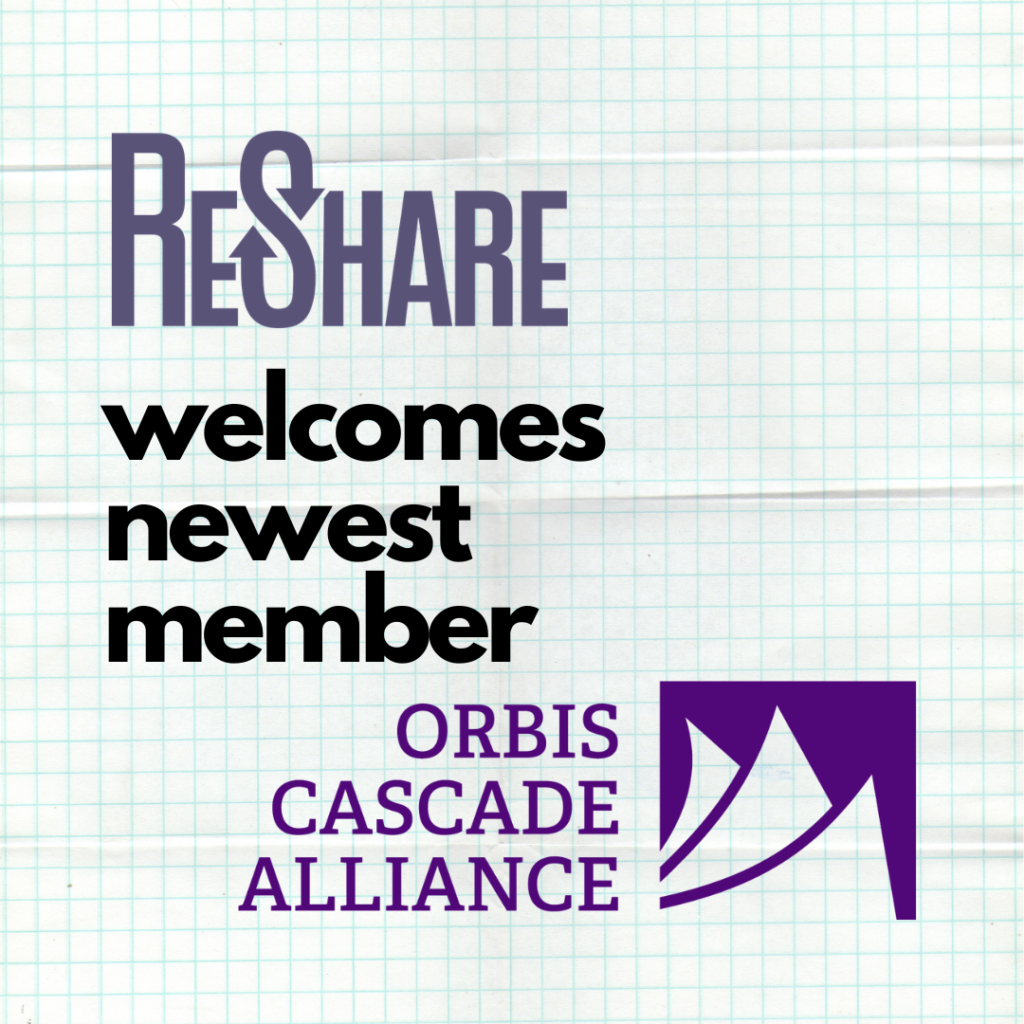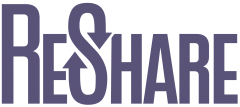**FOR IMMEDIATE RELEASE**

[Portland, Oregon, May 7, 2024] – The Orbis Cascade Alliance is proud to join Project ReShare as a Champion Consortium and contribute to Project ReShare’s goal of creating an open source, community-owned, library resource sharing platform. The ReShare community’s emphasis on collaborative development of tools that meet the functional needs of both library workers and library users aligns with the Alliance’s values and vision for the future.
The Alliance’s robust resource sharing program, exemplified by its Summit resource sharing initiative and courier service, has long been instrumental in facilitating the seamless exchange of physical library materials across the Pacific Northwest. Now, with a strategic focus on digital resource sharing models, the Alliance is poised to leverage Project ReShare’s innovative solutions to enhance access to digital content.
“The Orbis Cascade Alliance is thrilled to join the Project ReShare community, which embodies our mission of pushing the boundaries of library collaboration,” said Isaac Gilman, Executive Director of the Alliance. “The Alliance’s ability to deliver on our commitment to advancing equity in higher education is dependent on the extent to which we make strategic choices about where we invest our time and financial resources. By investing in ReShare, we are shaping a future that will better allow us, and our members, to provide equitable access to library resources and services for the students, staff, and faculty we serve.”
In support of its consortium-level commitment to the Project ReShare community, the Alliance’s central staff and member library staff will engage directly with ReShare initiatives, building on a long history of working collectively and collaboratively across consortia and libraries to advance technology and workflows beneficial to the library community as a whole.
“We are excited to welcome the Orbis Cascade Alliance to the Project ReShare community,” said Charlie Barlow, Executive Director of the Boston Library Consortium and Co-Chair of the Project ReShare Steering Committee. “Their extensive experience and dedication to advancing library resource sharing will undoubtedly enrich our collaborative efforts and contribute to the continued success of our shared initiatives.”
—
*About Orbis Cascade Alliance:*
The Orbis Cascade Alliance is a library consortium of 38 academic libraries in Oregon, Washington, and Idaho, with members including community colleges, private colleges and universities, and public regional and research universities. In service of our mission to “create and deliver innovative, sustainable, and essential library programs and resources” that advance our member institutions, the Alliance runs a shared library management system and discovery interface; works on collective purchasing; facilitates access to unique and local collections; and coordinates resource sharing for our members. The Alliance also serves dozens of affiliate members across our region, further connecting government, special, public, and academic libraries in the Northwest through shared licensing, physical courier service, and archival collections discovery.
*About Project ReShare:*
Project ReShare is a dynamic community-driven initiative dedicated to empowering libraries and consortia worldwide through innovative, user-centered, and community-owned library technologies and tools. With a vision to serve as libraries’ competitive advantage in fostering innovation and agency in support of collections and resource sharing, Project ReShare maintains an inclusive and sustainable ecosystem that prioritizes accountability to its community of co-investors.
At the heart of Project ReShare’s mission is the commitment to set the standard for library collaboration, partnership, resource sharing, and patron connectivity. By developing standards-based, community-driven solutions, Project ReShare aims to revolutionize how libraries share, ensuring equitable access to information resources for all patrons.
For more information about Project ReShare and its community of co-investors, visit projectreshare.org.
—–
For media inquiries or further information, please contact:
Orbis Cascade Alliance
Isaac Gilman
Executive Director
igilman@orbiscascade.org
www.orbiscascade.org
Project ReShare
Charlie Barlow and Ginny Boyer
Co-Chairs, ReShare Steering Committee
info@projectreshare.org
